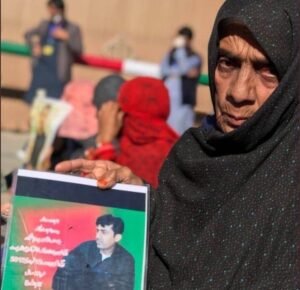Pakistan’s Digital Clampdown: A Threat to Democracy and Free Speech

@Microsoft Bing
By Fatima Chaudhary
In recent months, Pakistan has witnessed a significant intensification in efforts by the government to regulate and control the digital landscape, raising serious concerns about the erosion of fundamental freedoms, particularly freedom of speech and expression. The ongoing imposition of what appears to be a national firewall, coupled with prolonged internet disruptions, has not only affected daily life but also threatened the economic stability of the nation. The implications of these actions extend far beyond mere inconvenience, signaling a broader attempt to stifle dissent and control the flow of information within the country.
The Pakistan Software Houses Association (PSHA) has raised alarms over the devastating economic consequences of the government’s actions. The imposition of the national firewall, designed to monitor and regulate online content, has led to widespread and prolonged internet disruptions across the country. These disruptions have resulted in significant financial losses, estimated to reach as high as $300 million. This figure could rise even further if the situation persists.
Ali Ihsan, Senior Vice Chairman of PSHA, described the situation as a “complete meltdown of business operations,” highlighting that these disruptions are far from trivial. For many businesses, especially those in the digital and IT sectors, reliable internet access is crucial. The erratic performance of Virtual Private Networks, which many rely on to maintain some level of connectivity, has only exacerbated the situation.
Freelancers and entrepreneurs have been hit particularly hard by these disruptions. The case of Omeed Khan, a freelance video editor from Islamabad, exemplifies the plight of many. For weeks, Khan has struggled to download or upload lengthy video files, crippling his ability to meet deadlines for his international clients. This has had a severe impact on his livelihood, as clients begin to seek alternatives in neighboring countries like India and Bangladesh, where internet reliability is not in question.
While the Pakistani Government has denied using the firewall for censorship, activists and digital rights groups argue otherwise. They assert that the firewall is part of a broader strategy to exert control over the online space and suppress dissent. Reports of a China-style national firewall being implemented have fueled these concerns. Such a system would allow the government to monitor and regulate content on social media platforms, effectively silencing voices critical of the government and its policies.
The alleged building of this firewall has raised alarms about its impact on fundamental rights, including freedom of expression, the right to privacy, and access to information. Farieha Aziz, co-founder of the digital rights group Bolo Bhi, emphasized the lack of transparency and due process in the government’s actions. The absence of disclosure about the nature and extent of the firewall only deepens suspicions that it is designed to stifle free speech and silence opposition.
The Pakistan Telecommunication Authority (PTA), overseen by a retired Army General, has offered conflicting explanations for the internet disruptions, ranging from technical issues with undersea cables to the increased use of VPNs. However, these explanations have done little to alleviate concerns. Activists maintain that the real issue lies in the government’s attempts to tighten control over the digital sphere, using the pretext of “upgrading” the web-management system.
The economic ramifications of these actions are profound. Pakistan’s digital economy, which contributes over $2.5 billion annually through digital exports, is at risk. The disruptions are deterring potential investors, who are unlikely to commit to a market where the reliability of essential infrastructure, like the internet, is in question. The uncertainty surrounding internet access and the government’s intentions are creating an environment of instability, further weakening the already fragile economy.
Prominent Human Rights groups including the internal ones such as the Human Rights Commission of Pakistan (HRCP), have condemned the government’s actions, calling for an immediate halt to the alleged firewall implementation. They argue that access to the internet is a fundamental right, especially in a country where job security and alternative incomes are scarce. The slowdown in internet connectivity is proving detrimental to freelancers and small businesses, who are already struggling amid a severe cost-of-living crisis.
The situation in Pakistan serves as a stark reminder of the prominence of Army in the decisions of the Government, curbing individual freedoms of its citizens. While governments have a responsibility to protect their citizens, this must not come at the cost of fundamental rights, including freedom of speech and expression. The ongoing efforts to impose a national firewall and the resulting internet disruptions pose a significant threat to these freedoms.
As the government continues to deny allegations of censorship, the evidence suggests otherwise. The implications of these actions are far-reaching, not only for Pakistan’s economy but also for the future of its democracy. It is imperative that the international community and domestic stakeholders remain vigilant and hold the government accountable to ensure that the rights of all Pakistanis are protected. The fight for freedom of expression is one that cannot be compromised, for it is the cornerstone of any democratic society.
Fatima Chaudhary is a lecturer at a private university in Punjab province.
Note: The contents of the article are of sole responsibility of the author. Afghan Diaspora Network will not be responsible for any inaccurate or incorrect statement in the articles.











